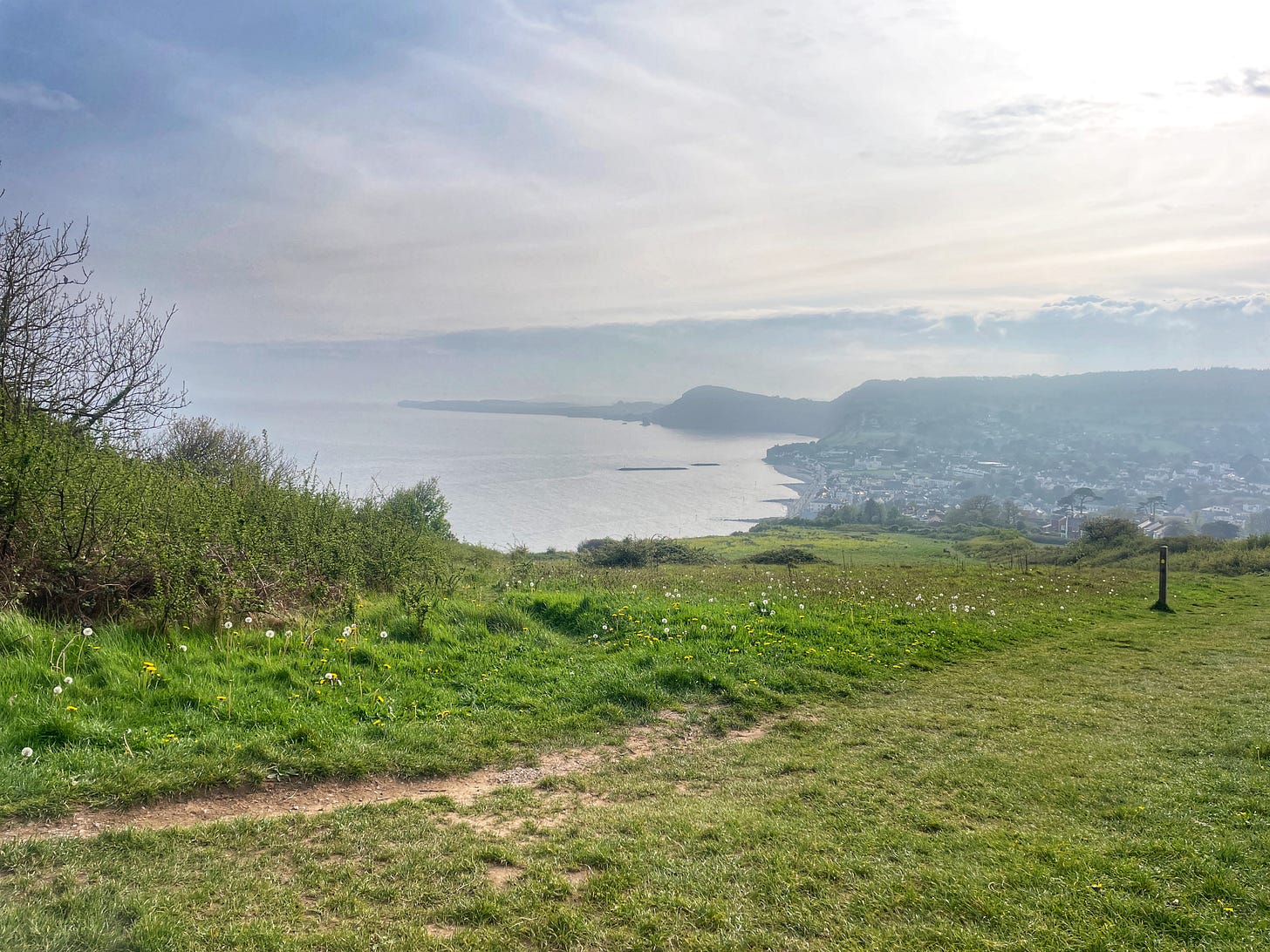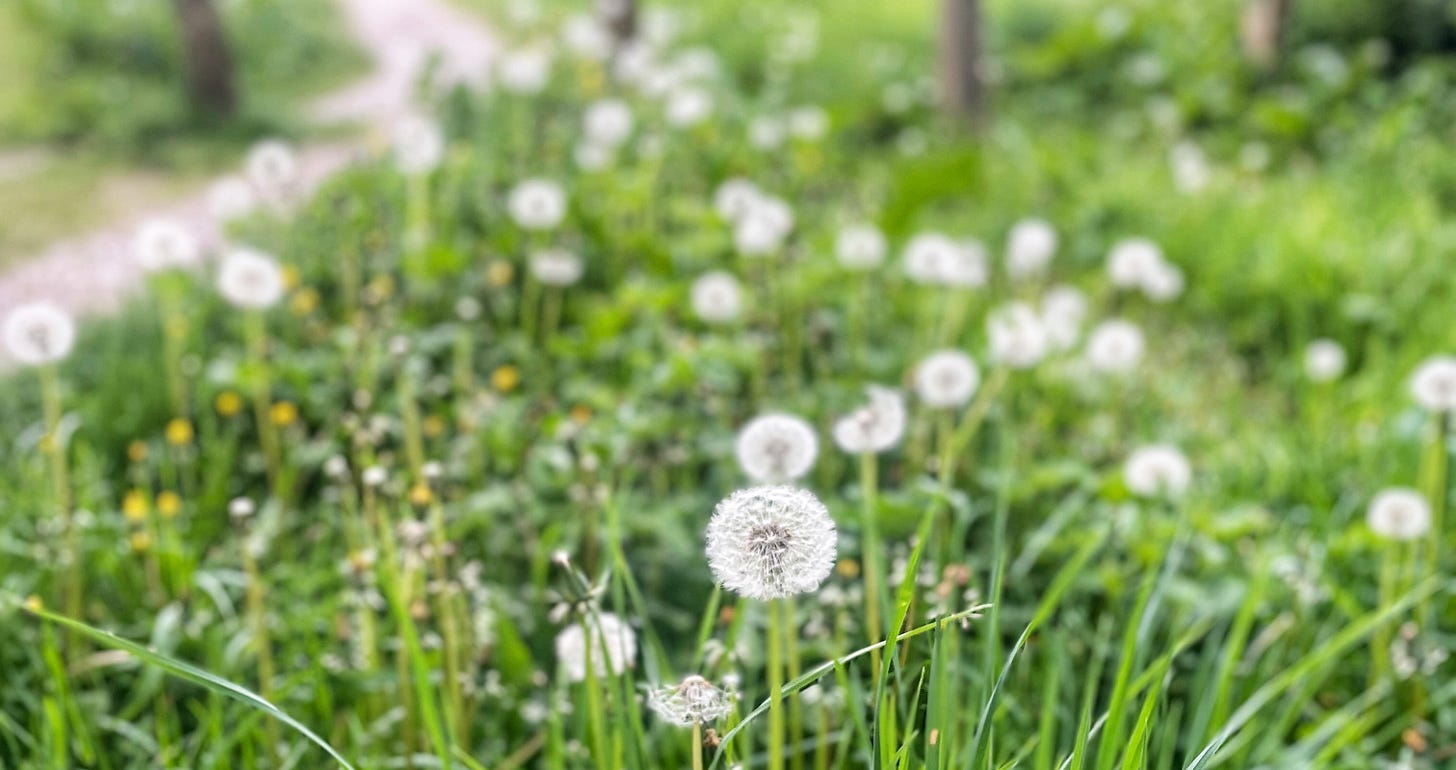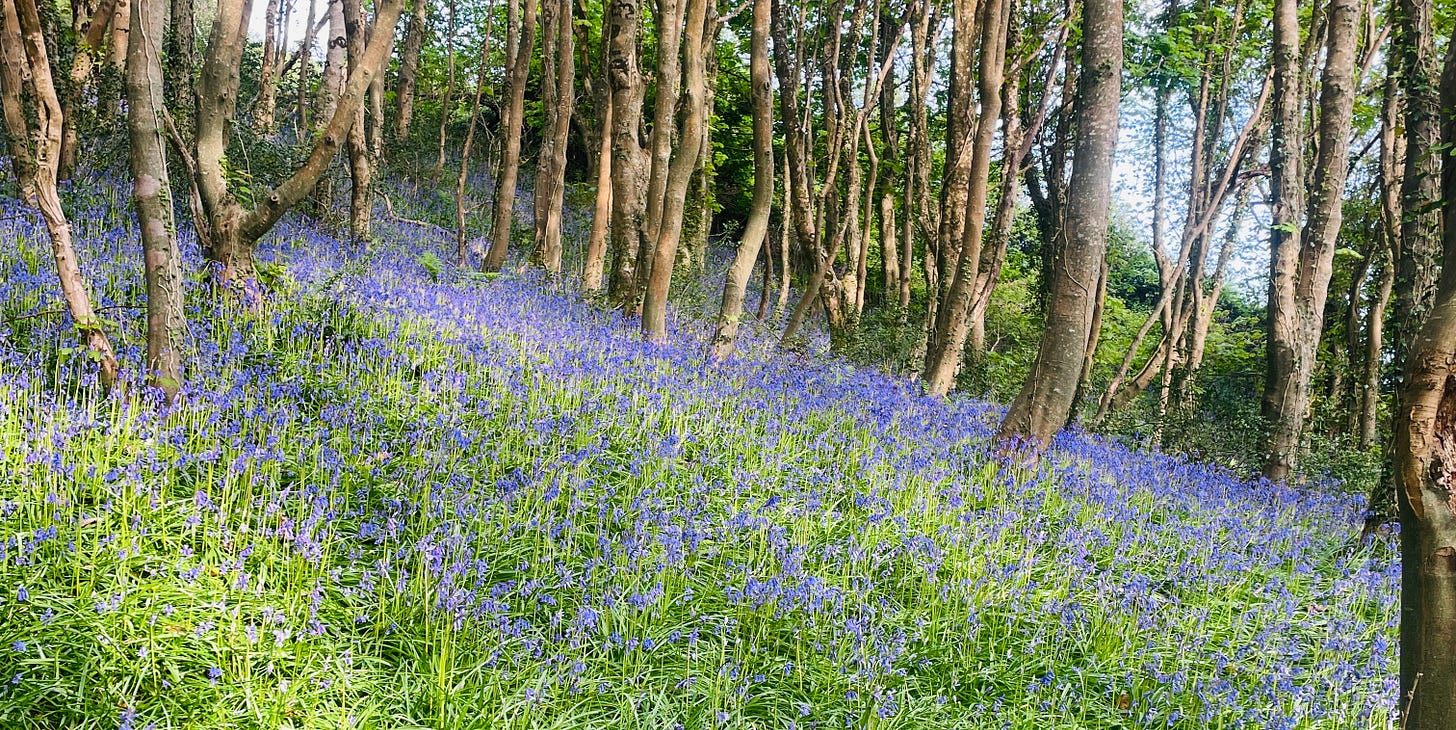Hello.
Over the last couple of years I’ve run gatherings that help with the writing process, the practicalities of reaching an audience and getting a book away, and with getting to grips with Substack.
It’s been huge fun, and the feedback has been really amazing (check the comments here). It’s also become obvious that there is an appetite for something longer, ongoing, that builds in instalments.
And so I’m launching a year long writing course.
Every month, starting on May 22, I’ll run a gathering online, where we focus on a particular aspect of writing. You can come to one, some or all.
The gatherings move through the creative and practical process of writing, providing a place for a cohort of creative writers to progress through a series of gatherings together, while allowing space for others to pop in for some gatherings as they like.
Why I can help
I have a lot of experience, and I know what I’m doing.
I’ve written 14 books, won 23 writing and photography awards (including Food Book of the Year and Garden Book of the Year twice each), been shortlisted for a James Beard Award. I write monthly columns for The Sunday Times, Delicious magazine, Scribehound Food and Scribehound Gardening channels, and Country Life, as well as writing my Abundance substack.
I teach writing: as well as running food writing retreats with Diana Henry since 2019, I teach overseas (including this summer at a week-long retreat in Italy) and am Writer in Residence at Limewood Hotel, England. Every year, I mentor a number of writers, tailoring my advice and help to their differing aims, creative aspirations and experience.
Why you should come
If you want to write, have a book published, or have already made some way into the writing world - perhaps even written a book or two - but have either slowed creatively or are struggling to grab the attention of a publisher or other gatekeeper, this course is for you.
If you want to find your voice, develop confidence, build on your creative skills for the pleasure of expressing yourself or recording a story or history for personal reasons or the simple pleasure of that, rather than necessarily for publication, you’ll find this hugely useful.
If you are looking for inspiration, practical tools, an experienced view and tips on how you might realise your aims, I can help.
The course is most relevant in some of its detail to food, nature and garden writers, but the principles are much more widely applicable and useful.
Over the course of the year, you will have the opportunity to undertake 10-15 hours of serious writing development. A two day writing course, in manageable instalments, that is responsive to you and your aims, doesn't usually come cheap. This is.
Costs
The opportunity to attend this course is open and free to paid subscribers. If you are not a paid subscriber, please upgrade - an annual plan is cheapest.
Format
Each of these gatherings will be 45-90 minutes long, depending on the topic. They will be online, using Zoom.
While I will have resources and thoughts to share, these gatherings will be driven by those attending. They are tailored to you and your specific needs. You will be able to submit questions, queries and subjects you’d like to cover ahead, by email, as well as asking questions on the day.
These gatherings will be live only, with no replays - this encourages everyone present to speak openly about ideas, ask questions in a relaxed environment and contribute freely to the gathering.
You can attend as many of the gatherings as you like - you do not have to attend every one - but please be aware that I will not be recapping or repeating any subject matter from previous gatherings.
If you can’t attend a gathering because of a diary clash, you may be able to another time as I hope to repeat this course in some form.
How it works
Every month, I’ll release booking info for a gathering. The first is below. Book as quickly as you can.
On the day a gathering runs, I will release the booking info for the next gathering.
The Gatherings
The structure of the course - which may change in emphasis and order - is below.
As you can see, it is a mixture of creative and practical - tools, techniques and perspectives - that I hope will elevate your writing and help you reach the audience you seek.
The notes below each topic are just signposts to save space - we will reach further in response to the aims and needs of those attending.
You may notice there are only 11 months worth of gatherings: the twelfth space is to allow room for something to become apparent (as it always does) from the other gatherings.
I am likely to invite a few guests here and there, where their expertise in that particular aspect of writing will embellish what I have to offer.
The Writing Process
Different methods. Drafting and crafting - one process or two stages? Getting it down on the page. Revising and editing. Prioritising the best time. Working on the hard days. Writing tools
An Agent or Not?
What do agents do? Do you need one? Pros and cons. The different kinds of agents. Choosing an agent that’s right for you. Finding and approaching an agent. How to go about it without an agent
Ideas
Finding ideas. Filtering the best. Translating the magic from your mind to the page. Going from lightbulb to a single gripping paragraph. Polishing, developing and refining
Title and Subtitle
The importance of a good title. Creating a hard working subtitle. What they should convey. Balancing impact with practicality. Distinctiveness. A good title can sell the book to an agent and publisher more than the rest of the proposal
Setting Yourself Apart
Establishing: Why me, why now? Who is your audience? Identifying the market for your writing. Clarifying distinction. Awareness and consistency
Reading Well to Write Well
Books about writing. Setting a level. Resources that can help, writers to read. Writing communities. Prioritising. Reading like a writer
Building A Community
Finding an audience. Engaging: what works v what you want to do. Platforms and media. Maximising Substack as the home of your writing.
Dealing with Imposter Syndrome and Self Doubt
Dealing with the invisible jury. Establishing some truths and techniques. Understanding the value of these feelings. How to carry on anyway. Useful resources and processes
Writing and Maintaining Momentum
Finding an outlet and audience for your words. Planning. Staying committed. Accepting the whole deal of being a writer. Remembering why you do it. Prioritising your writing; giving yourself permission
Publishers
How to attract a publisher. What are publishers looking for? What they not interested in. Finding publishers that are right for you. Where to look for publisher contacts
Proposals
What format should they take? What a proposal should include. What they shouldn’t include. Structure and clarity. Voice and style. Who do you send them to?
Recipe Development
Recipe inspiration. Structure and form. The power and opportunity of the intro. Telling stories. Writing recipes with the reader in mind. Adding value to recipes - adaptations, seasonal substitutions etc
The First Gathering
The Writing Process
Different methods. Drafting and crafting - one process or two stages? Getting it down on the page. Revising and editing. Prioritising the best time. Working on the hard days. Writing tools.
The booking information is below.





